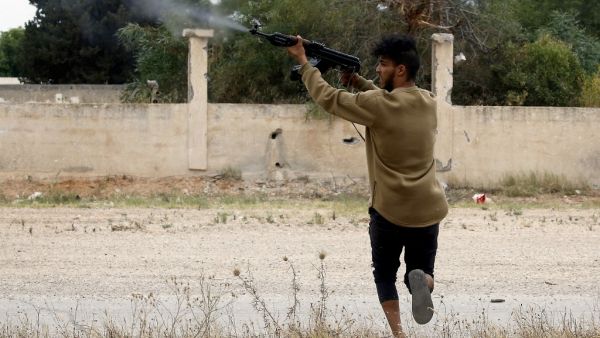There is still a chance to stop the bloodshed in Libya, according to the head of the country’s UN-recognized government said Wednesday.
"We are calling on our brothers in the East to stay away from this war,” said Fayez al-Sarraj. “The blood of all Libyans are valuable to us.”
The remarks came during a meeting with Tunisian President Beji Caid Essebsi in which they discussed current developments in the war-torn country.
"We were approaching the peaceful settlement for the country but the attacks on Tripoli, fundamentally shook the political process, dragging the country into vortex of violence and war," Sarraj said while emphasizing that hundreds of lives have been lost on both the sides.
{"preview_thumbnail":"https://cdn.flowplayer.com/6684a05f-6468-4ecd-87d5-a748773282a3/i/v-i-1…","video_id":"17f6a975-6167-4bae-b346-ac97386f7fc9","player_id":"8ca46225-42a2-4245-9c20-7850ae937431","provider":"flowplayer","video":"US Accuses Assad Regime of New Chemical Attack in Syria"}
"There is still a chance to stop the bloodshed in Libya and settle down with dialogue," he said.
He noted the struggle in Libya was not between the East and the West, but the modern civil state and those who want to militarize and return to a totalitarian regime.
Libya has remained beset by turmoil since 2011, when long-serving leader Muammar Gaddafi was ousted and killed in a bloody NATO-backed uprising after four decades in power.
The oil-rich country has since seen the emergence of two rival seats of power: one in eastern Libya, with which Haftar is affiliated, and another in Tripoli, which enjoys UN recognition.
This article has been adapted from its original source.








